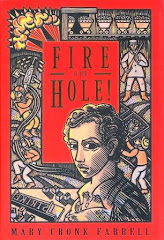Orhan Pamuk on Historical Fiction
I have yet to spot Orhan Pamuk, Turkish writer and 2006 recipient of the Nobel Prize in Literature, but found his latest essays Other Colours for sale in The Book Shop, a store devoted to English translations of everything having to do with Turkey and regional culture. Ali Tuysuz is the owner of this Sultanahmet establishment along with a twin store across the street. A busy tram cars runs between them every five minutes carrying commuters and tourists.
As I paid for Pamuk’s collection, soon to be released in the U.S., I asked one of the employees his opinion on historical fiction. Did he feel that it helps us understand the world today. "Of course!" Sener, said.
"Can you give me a specific example?" I said.
Sener smiled but clammed up. "Well...take a look at this book, for instance," he reached for the book Birds Without Wings, by Louis de Bernieres and opened it to the page full of blurbs. "Even the guide book for Turkey, Lonely Planet, says, ‘If you read one book about Turkey, make this it.’"
On the rooftop garden at my hotel, I pulled out Other Colours, choosing to read the essay where the book fell open. It was an essay on Dostoevsky novel Demons. This "greatest political novel of all time," according to Pamuk, explored "man’s will to power, his capacity for forgiveness, his ability to deceive himself and others...." What Pamuk said in this essay couldn't have been more pertinent to my quest for the truth about historical fiction. "And so, when as a young leftist I read Demons, it seemed to me that the story was not about Russia a hundred years earlier but about Turkey, which had succumb to a radical politics...I remember asking myself at the time why no one talked about the revelations in this book. It had so much to tell us about our own times."
Do you think historical fiction is relevant today? Do you agree with Sener and the Nobel Laureate or the Governor from Wasilla?










No comments:
Post a Comment